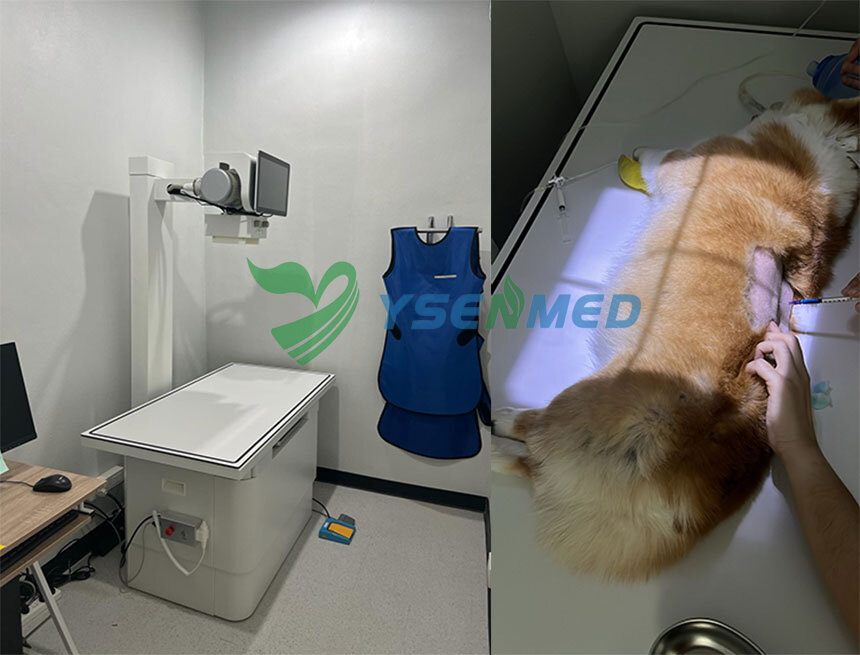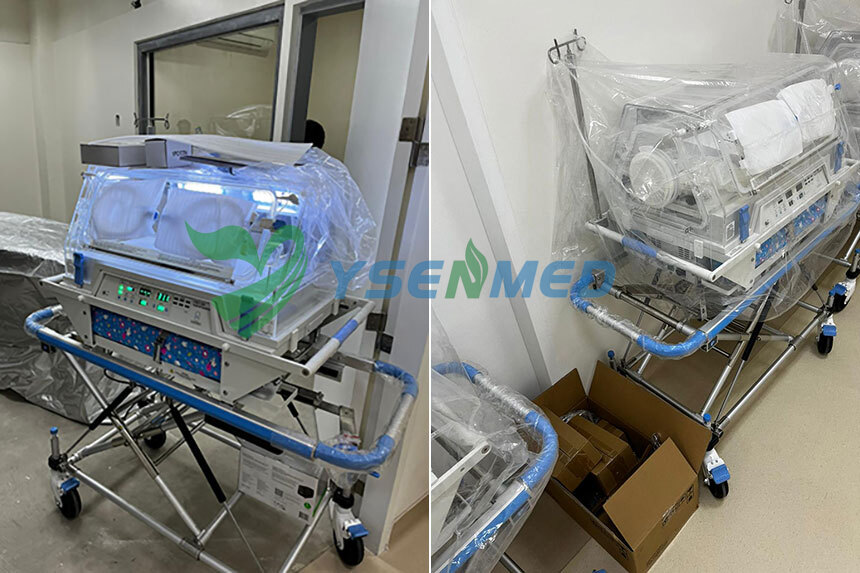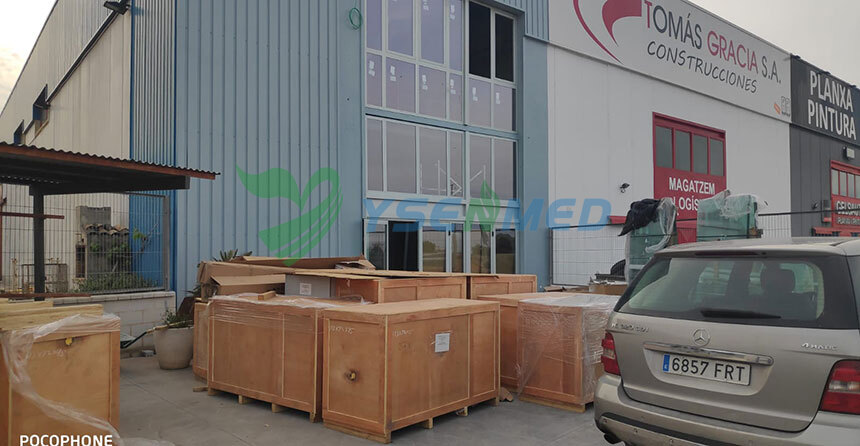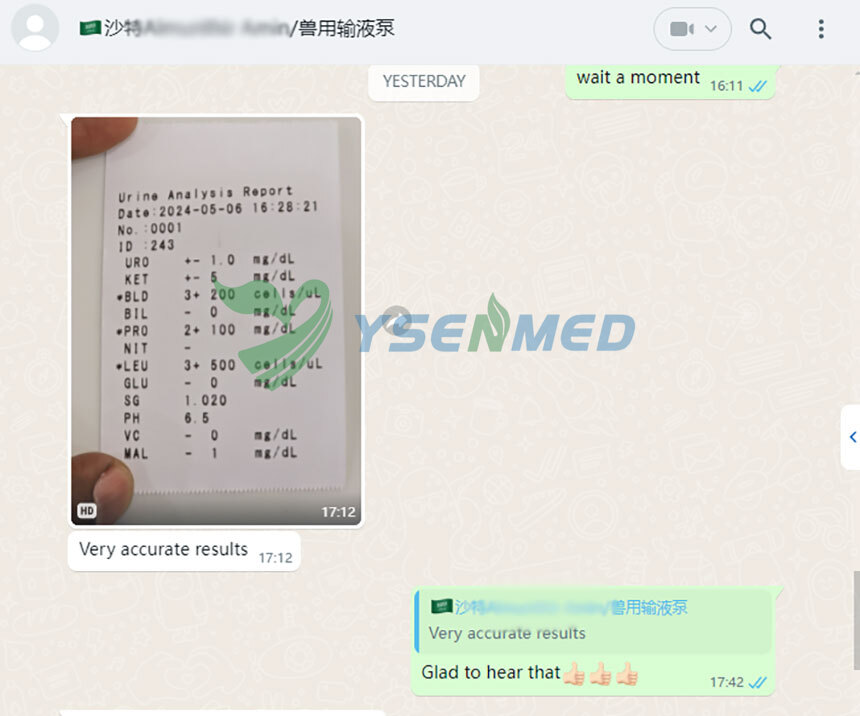Title: Portable Blood Gas Analyzers: Improving Patient Outcomes through Timely Interventions
Introduction
In healthcare, timely and accurate diagnostic information can make the difference between life and death, especially in critical care settings.
Portable blood gas analyzers have become invaluable tools in providing rapid and reliable assessments of patients' blood parameters, enabling healthcare professionals to make swift, informed decisions. This article explores the impact of portable blood gas analyzers on patient outcomes, emphasizing how these devices facilitate timely interventions and contribute to improved healthcare delivery.
Understanding Portable Blood Gas Analyzers
Portable blood gas analyzers are compact devices designed to measure key blood parameters, including oxygen (O2), carbon dioxide (CO2), pH, bicarbonate (HCO3-), and electrolytes. Unlike traditional laboratory-based analyzers, these portable devices are designed for use at the point of care, providing quick results with minimal sample volumes. The speed and accuracy of these analyzers make them essential in a variety of clinical settings, from emergency rooms and intensive care units (ICUs) to neonatal wards and operating theaters.
Key Features of Portable Blood Gas Analyzers
Portable blood gas analyzers are designed with features that enhance their utility in clinical practice, providing healthcare professionals with the tools they need to make rapid and accurate assessments:
Rapid Results:
One of the most significant advantages of portable blood gas analyzers is their ability to deliver rapid results, often within minutes. This speed is critical in emergency and critical care settings, where prompt decision-making is essential for patient survival.
Compact and Portable Design:
The compact design of these devices makes them easy to transport and use in various clinical environments. Healthcare providers can carry these analyzers to the patient's bedside, reducing the need for patient transport and minimizing delays in diagnosis.
Minimal Sample Volume:
Portable blood gas analyzers require only a small volume of blood for analysis, reducing patient discomfort during blood collection. This feature is particularly valuable in neonatal and pediatric care, where obtaining larger blood samples can be challenging.
User-Friendly Interface:
These devices feature intuitive interfaces and easy-to-use controls, reducing the learning curve for healthcare providers. This simplicity minimizes the risk of errors and facilitates quick training for new users.
Integration with Electronic Health Records (EHR):
Many portable blood gas analyzers can integrate with electronic health record systems, allowing for seamless data transfer and documentation. This integration enhances workflow efficiency and reduces the risk of transcription errors.
Improving Patient Outcomes through Timely Interventions
The ability to provide timely interventions is a key factor in improving patient outcomes, especially in critical care settings. Portable blood gas analyzers play a crucial role in this regard, enabling healthcare professionals to make rapid decisions based on real-time data. Let's explore how these devices contribute to better patient outcomes through timely interventions:
Early Detection of Life-Threatening Conditions:
Portable blood gas analyzers enable healthcare professionals to detect life-threatening conditions early, allowing for prompt intervention. For example, a rapid drop in blood oxygen levels (hypoxemia) can indicate respiratory failure, while an increase in blood carbon dioxide levels (hypercapnia) may signal respiratory acidosis. Early detection of these conditions allows for immediate treatment, reducing the risk of complications and improving patient survival rates.
Rapid Response in Emergency Situations:
In emergency situations, every second counts. Portable blood gas analyzers allow healthcare providers to assess critical blood parameters quickly, enabling rapid response to life-threatening conditions. For example, in cases of severe trauma or cardiac arrest, healthcare professionals can use these analyzers to guide resuscitation efforts and adjust interventions based on real-time data.
Optimizing Ventilation and Oxygenation:
Portable blood gas analyzers are essential in optimizing ventilation and oxygenation for patients with respiratory conditions. Healthcare providers can use these devices to monitor blood gas levels and adjust ventilator settings accordingly. This optimization reduces the risk of ventilator-associated complications and improves patient outcomes in respiratory care.
Guiding Anesthesia and Perioperative Care:
In anesthesiology and perioperative care, portable blood gas analyzers help guide anesthesia and monitor patients during surgery. Anesthesiologists can use these devices to ensure proper ventilation and oxygenation, reducing the risk of complications during surgery. The rapid results also facilitate timely interventions in the recovery room, promoting faster recovery and reducing the length of hospital stays.
Supporting Neonatal and Pediatric Care:
In neonatal and pediatric care, portable blood gas analyzers are valuable tools for monitoring critically ill infants and children. These devices allow neonatologists and pediatricians to assess blood gas parameters quickly, guiding treatment decisions and reducing the risk of complications. The minimal sample volume required by these devices is especially beneficial for neonates and young children.
Enhancing Workflow Efficiency:
Portable blood gas analyzers contribute to improved workflow efficiency in clinical settings. By providing rapid results at the point of care, these devices reduce the need for central laboratory processing, saving time and resources. This efficiency allows healthcare providers to focus on patient care, enhancing the overall quality of healthcare delivery.
Challenges and Considerations
While portable blood gas analyzers offer significant benefits, there are also challenges and considerations to keep in mind:
Calibration and Quality Control:
Proper calibration and quality control are essential for ensuring accurate results from portable blood gas analyzers. Healthcare facilities should establish protocols for regular calibration and quality checks to maintain the reliability of these devices.
Training and Education:
Proper training and education are crucial for healthcare providers using portable blood gas analyzers. Clinicians should be trained on how to operate the devices, interpret results, and integrate data with electronic health record systems. This training helps reduce the risk of errors and ensures effective use of the devices.
Cost and Resource Allocation:
The cost of portable blood gas analyzers and associated consumables may be a consideration for healthcare facilities. Proper resource allocation and budgeting are necessary to ensure these devices are available where needed. However, the benefits in terms of improved patient outcomes and workflow efficiency often justify the investment.
Conclusion
Portable blood gas analyzers are revolutionizing healthcare delivery by providing rapid and reliable assessments of critical blood parameters. From emergency rooms and intensive care units to neonatal wards and perioperative care, these devices are transforming patient outcomes through timely interventions. The ability to make rapid decisions based on real-time data is crucial for improving patient survival rates and reducing the risk of complications.
As healthcare continues to evolve,
portable blood gas analyzers will play an increasingly important role in advancing patient care and improving healthcare outcomes. By embracing the benefits of these devices and addressing the associated challenges, healthcare providers can ensure that they have the tools they need to deliver high-quality care and make timely interventions when they matter most.




